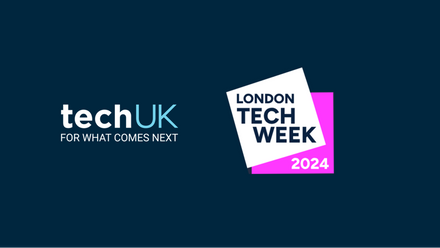Resources for Responsible AI Professionals: Building Your Career in Ethical AI and the Assurance Ecosystem
As AI continues to transform industries across the globe, the need for professionals who can operationalise its ethical implementation has never been more critical. Whether you're looking to join the field or are already working as a responsible AI practitioner, these resources from techUK will help you navigate this evolving profession.
The Emerging Landscape of Responsible AI Practitioners
Our recent paper "Mapping the Responsible AI Profession: A Field in Formation" reveals that responsible AI practitioners have become essential human infrastructure for operationalising ethical principles and regulatory requirements. These professionals stand at a critical juncture, as AI evolves from an emergent discipline into an essential organisational function, whilst its formal structures and boundaries are still being defined.
As the paper highlights, responsible AI practitioners serve as "multidisciplinary translators and lifetime learners" who piece together frameworks, secure internal buy-in, provide data access and translate the business case for ethics. Their role is crucial for organisations aiming to implement AI responsibly, support adoption and build confidence in AI to achieve the UK’s ambitions.
The growing complexity of AI systems demands increasingly sophisticated governance approaches. Organisations recognise that effective responsible AI practice requires both dedicated expertise and distributed responsibilities, with responsible AI practitioners often serving as orchestrators rather than sole owners of AI ethics and governance.
Our paper maps the current state of the UK's RAI profession and provides a roadmap for cultivating the professional framework necessary to ensure that AI development in the UK remains both innovative and aligned with our societal values and ethical standards.
Just as privacy experts became indispensable during the internet's expansion, responsible AI practitioners are now becoming the critical for the UK's AI future. By addressing these gaps, the UK can cultivate user trust, demonstrate regulatory readiness, and attract investment - building a foundation for adoption and confidence in AI.
Critical Gaps in the Responsible AI Profession
The paper identifies three major gaps currently undermining the effectiveness of responsible AI practitioners:
-
The absence of clearly defined roles and organisational position
-
The lack of structured career pathways
-
The absence of standardised skills and training frameworks
These gaps create tangible business risks: inconsistent ethical implementation, potential regulatory non-compliance, reputation damage, and barriers to establishing stakeholder trust. They also potentially hinder the UK's ability to establish leadership in responsible AI innovation and adoption.
Learning from Industry Leaders
For those interested in hearing directly from professionals in the field, techUK offers several valuable resources:
Insights from Chief Responsible AI Officers
Listen to Workday's Chief Responsible AI Officer Kelly Trindel discuss her journey from social scientist to AI governance leader, the day-to-day reality of responsible AI work, and the biggest challenges facing practitioners today. She also shares essential capabilities for effective AI ethics practice and strategic approaches to building multidisciplinary teams.
Panel Discussions with AI Ethicists
The 2024 Digital Ethics Summit featured a panel titled "Meet the 'AI Ethicists' - Insights from Responsible AI Practitioners" with experts including Enrico Panai, Bernd Carsten Stahl, Myrna Macgregor, and Kelly Trindel. This session explored how the role is defined, integrated, and valued within organisations, as well as the evolving responsibilities and skills needed for AI ethicists.
Learning to be a Responsible AI Practitioner
For a more hands-on perspective, check out the event recap from techUK's March gathering with All Tech Is Human, featuring insights from Thordis Sveinsdottir, Megha Mishra, and Thomas Akintan on their pathways to becoming a responsible AI practitioner.
Practical Tools and Frameworks
For practitioners already in the field, techUK's November 2024 paper provides an overview of available tools through their RAG framework. Pages 31-34 of our paper ‘Ethics in Action’ feature an alphabetical list of trustworthy AI tools mapped against the UK’s five ethical principles they help organisations achieve and demonstrate. Access this resource here.
Moving Forward: Priority Actions
The recommendations presented here directly address the gaps identified throughout our mapping of the profession - from unclear career pathways to insufficient organisational positioning and underdeveloped professional frameworks.
By taking concrete actions now, stakeholders can strengthen this essential professional community before AI governance challenges outpace our capacity to effectively address them. The specific priority actions for each stakeholder group (outlined below) provides ways in which we can cultivate the human infrastructure needed to ensure that AI development in the UK remains innovative and responsible.
Our investigation into the UK's responsible AI profession reveals a critical workforce developing at the intersection of ethics, technology and governance. These practitioners from diverse professional backgrounds serve as essential bridge-builders who operationalise ethical principles and regulatory requirements within organisations.
The profession stands at a pivotal development stage, evolving from advisory roles to strategic functions with direct influence on AI development. Without these professionals to implement principles of safety, transparency, fairness, accountability and contestability, the UK's regulatory approach risks remaining only a conceptual aspiration rather than becoming a practical and operational system.
-
Priority Actions for Organisations: Establish RAI roles with clear mandates and sufficient authority to influence AI development proactively. Invest equally in technical capabilities and governance skills when developing AI talent. Ensure that RAI practitioners have direct reporting lines to senior leadership. The following priorities represent the most urgent actions needed to strengthen this crucial professional community.
-
Priority Actions for Professional Bodies: Develop flexible certification frameworks that recognise multiple pathways to expertise. Centre current practitioners in professionalisation discussions to build upon existing best practices. Create accessible professional development opportunities that maintain diversity while establishing standards. Define clear boundaries between the ethical, auditorial and compliance functions of RAI practice. Ensure that emerging certification frameworks accommodate a wide range of entry routes and validate both formal and experiential learning, especially in ethics, social impact, and interdisciplinary practice.
-
Priority Actions for Policymakers: Recognise RAI practitioners as essential human infrastructure for effective AI governance, adoption across the economy and development of the assurance ecosystem. Support industry collaboration through networks like techUK to address common challenges. Invest in educational pathways and talent pipelines that develop both technical and ethical competencies. Monitor the profession's evolution to identify areas requiring additional support.
For the UK to achieve its ambition to increase the adoption of the AI and develop the AI assurance ecosystem, we must move beyond asking whether organisations need RAI expertise and focus instead on how to effectively develop, deploy and support these professionals across the economy.
This blog post is based on papers and resources from techUK. For more information, visit their website or access the full papers linked throughout this article or contact our Programme Manager in Digital Ethics and AI Safety, Tess Buckley at [email protected]

Tess Buckley
A digital ethicist and musician, Tess holds a MA in AI and Philosophy, specialising in ableism in biotechnologies. Their professional journey includes working as an AI Ethics Analyst with a dataset on corporate digital responsibility, followed by supporting the development of a specialised model for sustainability disclosure requests. Currently at techUK as programme manager in digital ethics and AI safety, Tess focuses on demystifying and operationalising ethics through assurance mechanisms and standards. Their primary research interests encompass AI music systems, AI fluency, and technology created by and for differently abled individuals. Their overarching goal is to apply philosophical principles to make emerging technologies both explainable and ethical.







